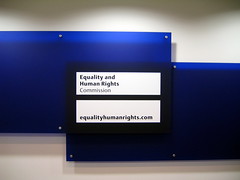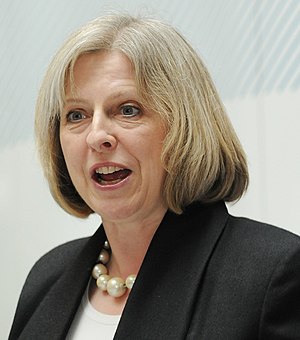 |
| Image via Wikipedia |
Mike Kaye is the Advocacy Manager for Still Human Still Here, a coalition of more than 40 organisations that are campaigning to end the destitution of refused asylum seekers in the UK.
Still Human Still Here believes that many asylum seekers who should be granted some form of protection in the UK are being refused and subsequently end up destitute. In 2010, it was estimated that around 70 percent of destitute refused asylum seekers in the UK came from just eight countries, all of which were either in conflict or had serious and widespread human rights violations. These countries were Zimbabwe, Iran, Iraq, Sudan, Afghanistan, Somalia, the Democratic Republic of Congo (DRC) and Eritrea (Still Human Still Here, At the end of the line: Restoring the integrity of the UK’s asylum system, 2010, p. 38).
Still Human Still Here’s contention that the Home Office incorrectly refuses many asylum seekers any form of protection in the UK is supported by a review of the number of decisions which are subsequently overturned on appeal. In 2010, 27 percent of appeals were allowed. That is to say that in more than one in four cases the UKBA got the initial decision wrong.
For some of the nationalities highlighted above, however, the overturn rates on appeal were significantly higher. For example, 50 percent of Somalis won their appeals in 2010 and 36 percent of Eritreans and Zimbabweans were also successful. During 2011, asylum seekers from these and other countries have continued to have an extremely high percentage of their appeals allowed. For example, 57 percent of Eritreans, 53 percent of Somalis, 38 percent of Sri Lankans and 31 percent of Zimbabweans won their appeals in the third quarter of 2011. These cases alone affected 218 individuals, causing them unnecessary anxiety and wasting considerable amounts of taxpayers’ money by forcing them to go to appeal when in many cases they could have been granted refugee status at the initial determination.
While the appeals process works for some refugees, it should be stressed that success at appeal is largely dependent on having good quality legal advice and representation and this is in increasingly short supply, particularly since the closure of both Refugee and Migrant Justice and the Immigration Advisory Service.
One way in which Still Human Still Here believes refugees could be better identified at the initial determination would be through improvements to the Operational Guidance Notes (OGNs). The OGNs outline conditions and risks to particular groups in various countries and are used by case owners as a key resource when deciding on individual asylum applications.
Several OGNs contain country of origin information and references to case law which are outdated. For example, the current OGN on the DRC was issued in December 2008 and relies heavily on the Country of Origin Information Service DRC Country Report from May 2008, which is now more than three-and-a-half years old. Since the beginning of 2009, more than 500 new applications for asylum have been made by individuals from the DRC. Decisions will have been reached on these applications on the basis of information which, at best, was seven months old. In this context, it is not surprising that the percentage of DRC appeals that are successful has risen to 34 percent in 2011 (up to October).
There are currently 30 OGNs published on the countries from which the UK receives the most asylum applications. Those countries from which there are lower numbers of applications tend to be updated with even less frequency. For example, the most recent OGN for Rwanda was issued in March 2009 and generally relies on country of origin information which was published in November 2008.
Even where OGNs are updated regularly, Still Human Still Here considers that many have inconsistencies and omissions between their conclusions and currently available country of origin information and/or case law.
For example, before an update on 15 December this year, the Somalia OGN cited a UKBA fact-finding mission as reporting ‘travel within Al-Shabaab controlled areas of southern and central Somalia was common and considered relatively safe’. It further noted that ‘everyone can move freely in south central’ and that given ‘the relative ease of travel within many areas of Somalia, it will be feasible for many to return to their home areas from Mogadishu airport as most areas are accessible’ (paras. 2.4.3 and 2.4.6).
This assessment appeared to ignore various reputable sources which note that checkpoints operated by armed militias and groups associated with Al-Shabaab inhibit passage and expose civilians to rape, violence, extortion and forced recruitment. Indeed, the United Nations Report of the Secretary-General on Somalia, 30 December 2010, noted that ‘[i]nternally displaced persons and refugees fleeing southern Somalia continued to report abuses by militias manning checkpoints before they reached safe areas, including rape, beatings and looting’ (para.33).
In order to draw attention to these sorts of inconsistencies, Still Human Still Here has published OGN commentaries, including 2011 commentaries on the most recent OGNs for Afghanistan, Sri Lanka, Jamaica, Zimbabwe, Iran, Eritrea and Sudan. These commentaries are intended as tools to assist legal practitioners in preparing appeals; we hope they will help ensure that individuals who may be at risk of persecution or other serious harm in their country of origin have a reasonable chance of getting protection in the UK.

































 Join our page
Join our page

